“Sleep is for the weak,” said no doctor ever. Because the opposite is true. If you want to be fit, healthy and strong — both emotionally and physically — you have to get plenty of shut-eye. The National Sleep Foundation recommends seven to nine hours of sleep per night for adults age between 26 and 64 years. However, more than a third of American adults don’t get as much sleep as they need.
“Multiple studies on health outcomes and sleep have made it clear that good quality sleep on a regular basis improves health and leads to a longer life,” said physician Dr. Kyle Varner.
When you start digging into the research, there’s no aspect of your health and well-being that isn’t affected by your sleep habits. From weight management to mental health to, of course, your work life, here are 13 reasons you really should go to sleep — and expert tips on how to do it.
Want to sleep better and have more mental and physical energy when you are awake? Download Loóna, an award-winning sleep app that uses art, guided meditation, storytelling and science to help people unwind, relax and get more restful sleep.
Sleep Can Improve Your Heart Health
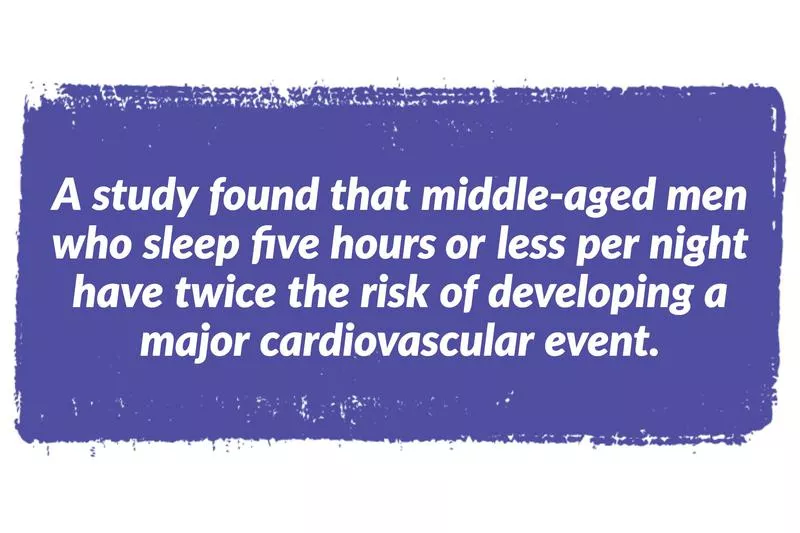
If you don’t get enough sleep, you might be putting your heart at risk. According to a study by the University of Gothenburg in Sweden, middle-aged men who sleep five hours or less per night have twice the risk of developing a major cardiovascular event during the following two decades than men who sleep between seven and eight hours.
However, too much sleep could lead to heart problems, too. Research led by McMaster University in Ontario, Canada found that people who slept a total of eight to nine hours a night had a 5-percent greater risk of suffering a major cardiovascular event than those who slept six to eight hours.
Expert sleep tip: Caffeine late in the day can have a negative effect on nighttime sleep, so don’t have coffee, soda or other caffeinated drinks after 3 p.m., says sleep specialist Whitney Roban, Ph.D.
Sleep Can Improve Weight Management

Sleep is crucial for weight management, and some studies even link inadequate sleep to obesity. By impacting appetite regulation, impairing glucose metabolism and increasing blood pressure, getting fewer than six hours sleep per night can lead to increased body mass index (BMI).
In one extensive review, children and adults with short sleep duration were respectively 89 percent and 55 percent more likely to become obese. Sleep disruption is believed to cause poor appetite regulation by interfering with the patterns of appetite hormones, such as ghrelin, the hormone that stimulates appetite, and leptin, the hormone that suppresses appetite.
Expert sleep tip: The blue light emitted from electronics tricks your brain into thinking it is day time. This leads to lower secretions of melatonin (the hormone that helps control your daily sleep-wake cycles) in the body, which makes it more difficult to fall asleep. Roban advises switching all electronics off at least one hour before bed.
Sleep Can Improve Learning
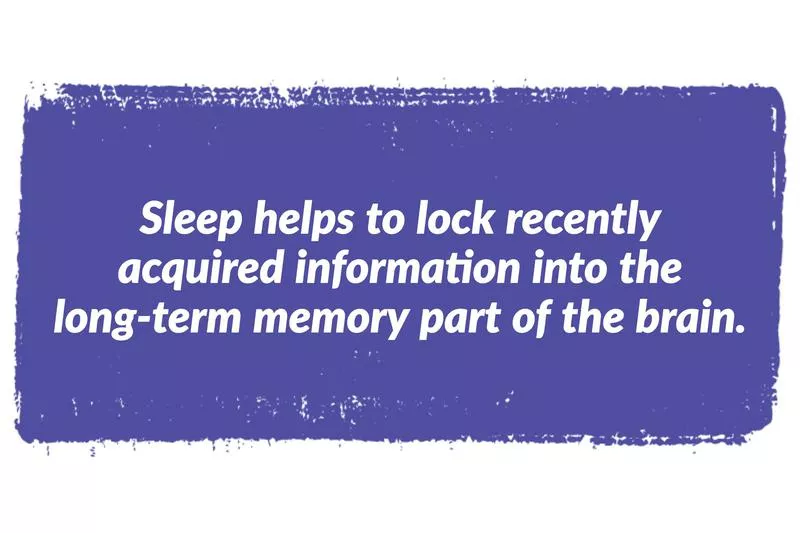
A well-rested brain out-performs a tired brain, making sleep vital for processing new information. Specifically, sleep helps to lock recently acquired information into the long-term memory part of the brain, and also plays an important role when it comes to learning new skills.
One study, carried out by researchers at Northwestern University, found that a 90-minute nap helped people learn a new tune. Participants learned how to play two artificially generated musical tunes by pressing keys. While they napped, the researchers played only one of the tunes that had been practiced. Following their nap, participants played both tunes again, and made fewer mistakes when playing the tune presented while they were asleep than they did when playing the tune not presented.
Expert sleep tip: “The human body works in a day-night cycle, and it is vitally important to sleep at night and be awake during the day,” says Varner. Try to avoid or reduce daytime naps.
Sleep Can Improve Athletic Prowess
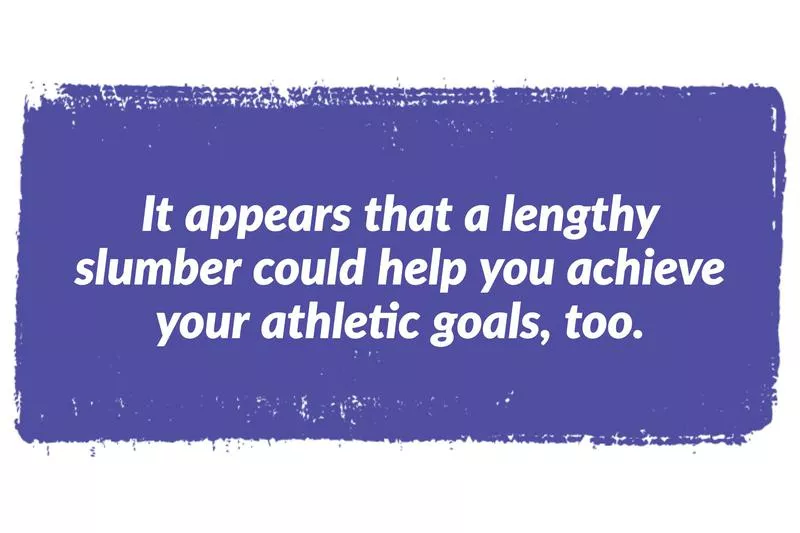
Many studies have linked sleep deprivation to poor exercise performance, decreased strength and reduced stamina, but less is known about the effects of longer periods of sleep on fitness and physical ability. However, it appears that a lengthy slumber could help you achieve your athletic goals. One Stanford University study on basketball players found that longer sleep (a minimum of 10 hours per night) significantly improved accuracy, speed, reaction times and mental well-being.
Expert sleep tip: Roban recommends exercising for at least 20 minutes every day to help improve sleep quality. But avoid working out within three hours of bedtime. While this might make you feel physically tired, it can energize you mentally.
Sleep Can Reduce Risk of Diabetes
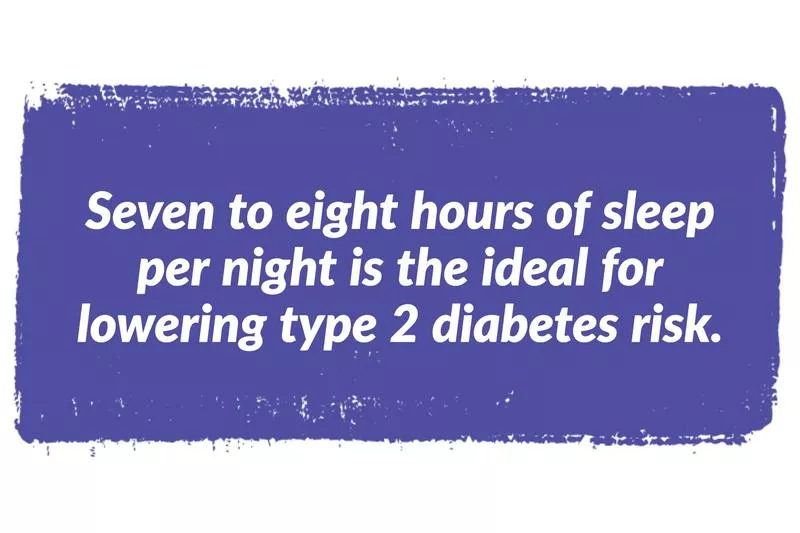
Research has repeatedly shown that people who sleep for less than six hours per night have a higher risk of developing type 2 diabetes. A Finnish study of healthy young men found that restricting sleep to four hours per night for six nights in a row caused symptoms of prediabetes. After one week of increased sleep duration, the symptoms resolved. An extensive meta-analysis of studies into sleep and diabetes concluded that seven to eight hours of sleep per night is the ideal for lowering type 2 diabetes risk.
Expert sleep tip: To get your body rhythms used to a regular sleep routine, Dr. Fran Walfish recommends always going to bed at the same time and setting your alarm for wake up at the same time. Exposure to sunlight during the day also helps reinforce a proper circadian rhythm.
Sleep Can Improve Your Immune System
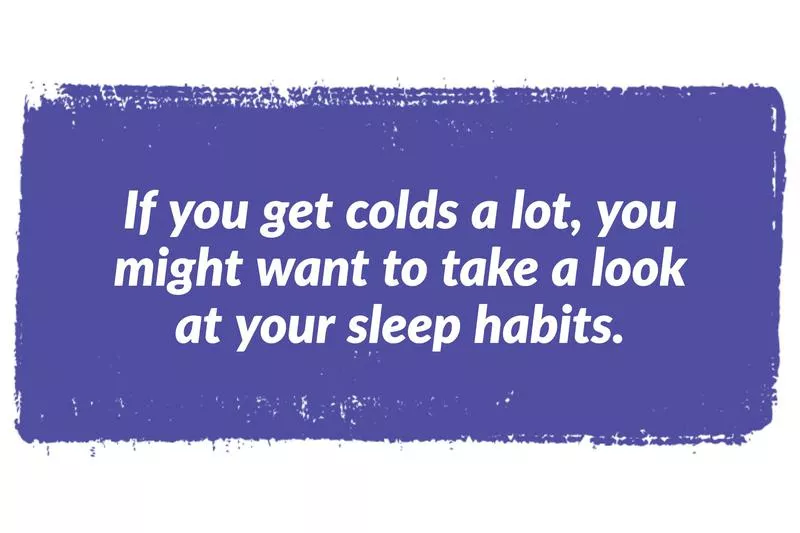
If you get colds a lot, you might want to take a look at your sleep habits. Even a small loss of sleep is believed to affect immune function. One large two-week study monitored the progress of the common cold after giving people nasal drops containing the cold virus and found that those who slept less than seven hours were nearly three times more likely to develop a cold than those who slept eight hours or more.
Expert sleep tip: The National Sleep Foundation recommends a dark, cool sleeping environment for the best quality sleep. Light suppresses the secretion of melatonin, so eliminate as much light as possible. And keep your room between 60 and 67 degrees.
Sleep Can Improve Creative Problem-Solving
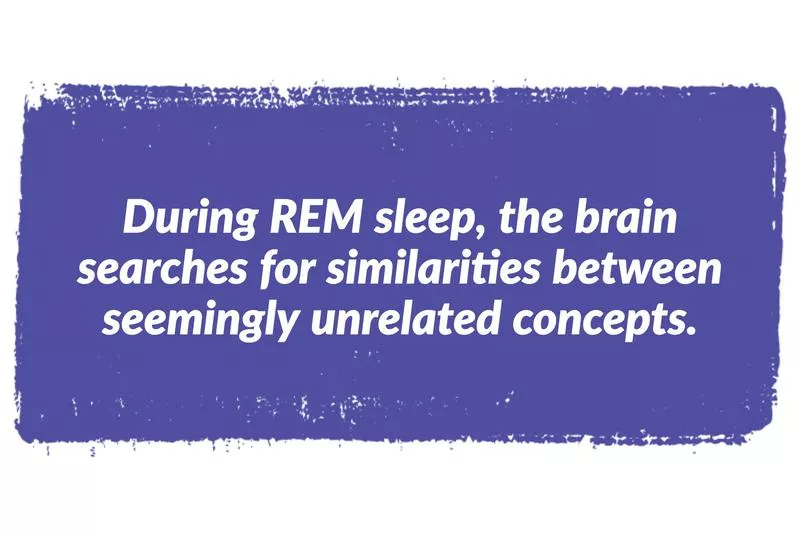
Scientists believe that a collaboration between the two main phases of sleep — non-REM and REM — is instrumental in improving our creative problem-solving abilities. A team led by Penny Lewis from Cardiff University in Wales developed a theory to explain what links sleep and creativity.
During non-REM sleep, the brain consolidates and strengthens new memories through replay, and also differentiates between generalities and specifics. During REM sleep, the brain searches for similarities between seemingly unrelated concepts. In other words, non-REM sleep isolates ideas, and REM sleep connects them.
Expert sleep tip: Sodium can increase water retention, which can have an adverse effect on your circulation and consequently your sleep. Avoid high sodium foods during dinner, but also in general, says Colin Zhu, D.O.
Sleep Can Decrease Inflammation
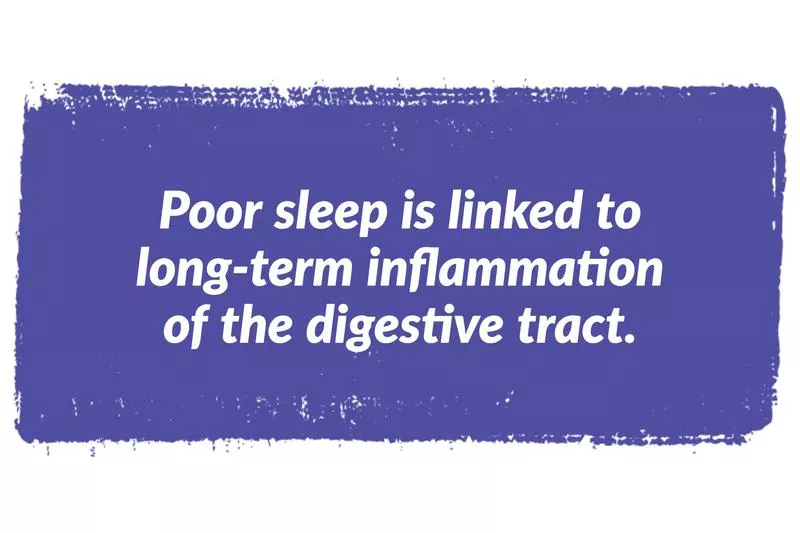
Sleep can have a major effect on inflammation in your body, with poor sleep linked to long-term inflammation of the digestive tract (inflammatory bowel diseases) and relapses in Crohn’s disease patients. Research has shown that people who get six hours or less of sleep a night have higher blood levels of inflammatory proteins than those who get more sleep.
“Low grade chronic inflammation is connected to a whole slew of illnesses including heart disease, stroke, diabetes, arthritis and premature aging,” said sleep expert Carolyn Dean, M.D.
Expert sleep tip: To encourage relaxation, Walfish recommends having a cup of chamomile tea before bed, which has calming effects thanks to an antioxidant called apigenin.
Sleep Can Provide a Mental Health Boost
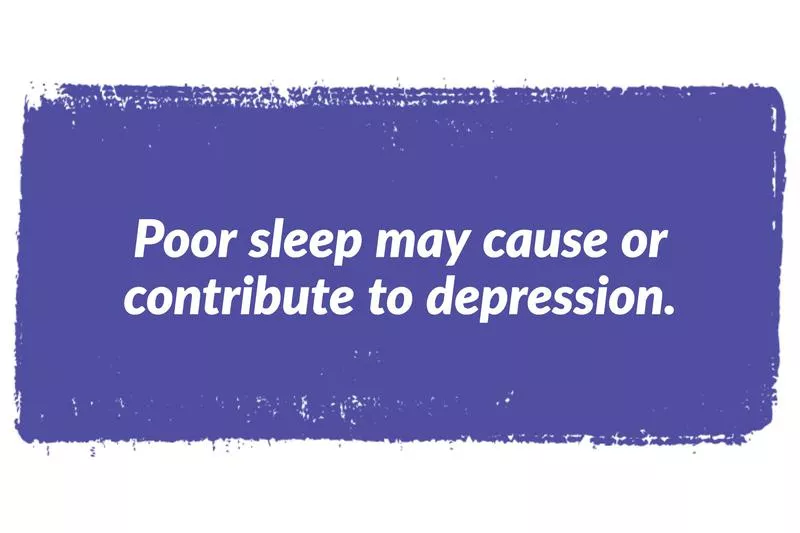
An estimated 90 percent of people with depression complain about the quality of their sleep, but the relationship between sleep and mental illness is complex. Poor sleep may cause or contribute to depression — evidence suggests that people with insomnia have a ten-fold risk of developing depression compared with those who sleep well — and equally, mental illness may lead to sleep problems. Results of a study of adolescents suggest that sleeping six hours or less per night increases the risk for major depression, which in turn increases the risk for decreased sleep.
Expert sleep tip: If you think you might have depression, seek professional help from a physician or therapist. Finding the right way to manage your mental health can help to alleviate the symptoms of depression, including lack of sleep, oversleeping or poor quality sleep.
Sleep Can Reduce Stress
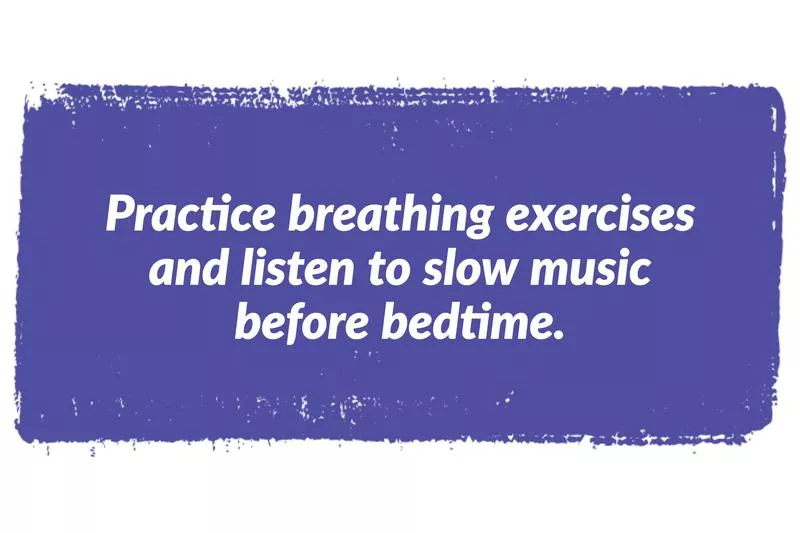
Quality sleep helps to stabilize the body’s levels of the hormone cortisol, which is instrumental in the physiologic response to all types of emotional and physical stress. “When you’re sleep-deprived, your body has trouble producing a normal cortisol response,” said Chirag Shah, M.D. “As a result, it’s much harder to produce a productive response to the stressors you encounter in everyday life.”
Expert sleep tip: To help reduce stress levels, Zhu suggests practicing breathing exercises, meditating, using guided imagery techniques and listening to slow music before bedtime.
Sleep Can Enhance Brain Function
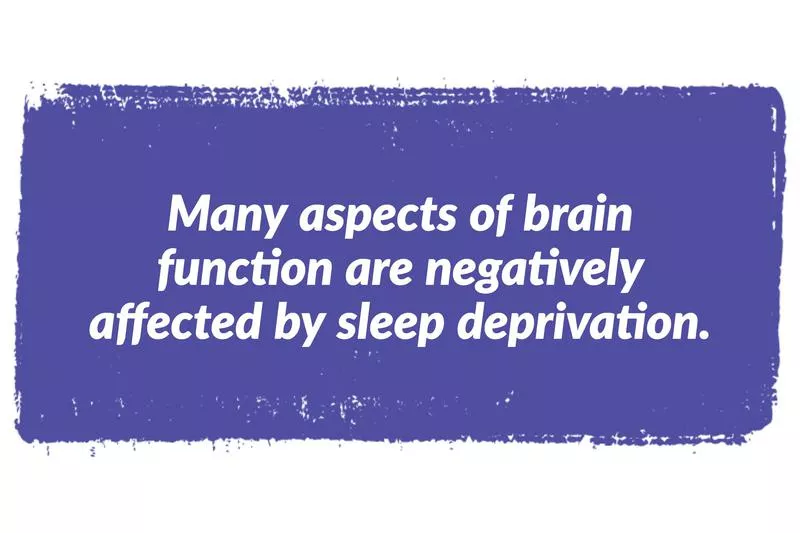
Many aspects of brain function, including cognition, concentration, productivity and performance, are negatively affected by sleep deprivation. A study on interns carried out for the Harvard Work Hours Health and Safety Group found that interns on a traditional schedule with extended work hours of more than 24 hours made 36 percent more serious medical errors than interns that got more sleep.
Another study found that people who suffer from sleep disturbances in midlife or as they age may be more likely to develop cognitive impairment than people who normally get sufficient uninterrupted rest.
Expert sleep tip: “The ingredient tryptophan, which is found in almonds, turkey and dairy products, has a natural calming, relaxing agent,” says Walfish. So go ahead and have that hot milk before bed.
Sleep Can Improve Your Social Skills
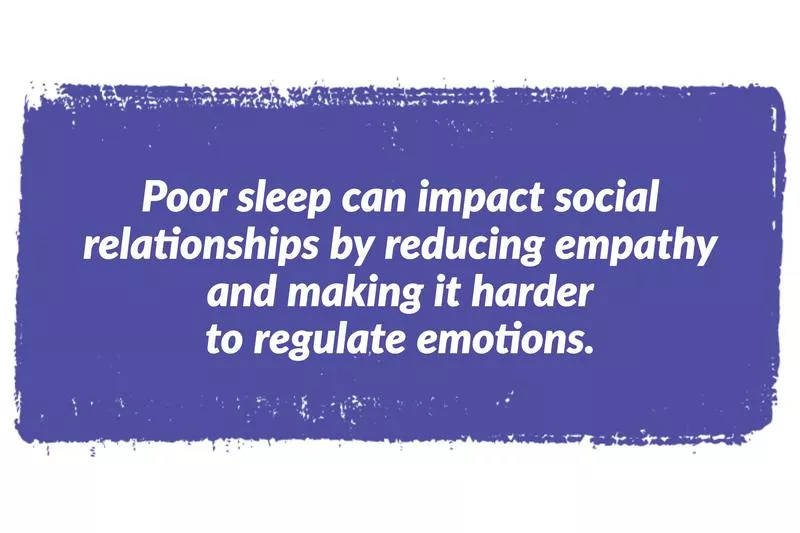
Lack of sleep may affect your social skills by reducing your ability to identify important social cues and process emotional information. One study, led by University of Arizona psychologist William D. S. Killgore, found that people who had not slept had a reduced ability to recognize expressions of anger, sadness and happiness. Poor sleep can also impact social relationships by reducing empathy and making it harder to regulate emotions, which can lead to conflict.
Expert sleep tip: Lay off the booze. “Drinking alcohol is a bad decision if you are trying to get a good night’s sleep,” says Walfish. “While it may make you feel sleepy after a while, it actually blocks tryptophan from getting to the brain.”
Sleep Can Lead to a Longer Life
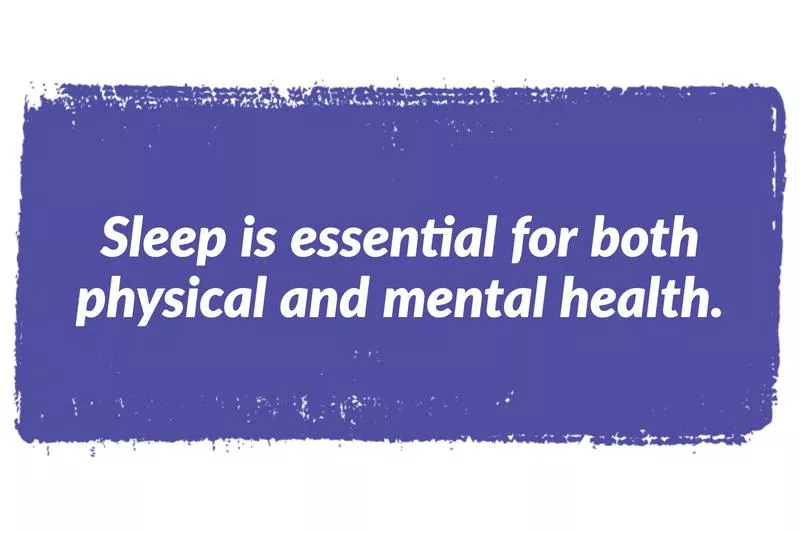
Studies show that if you get too little or too much sleep, your risk of death increases. This may be because sleep is an indicator of overall health, or because a wide range of diseases impact both longevity and sleep duration. In one British study, researchers discovered less than five hours of sleep doubled the risk of death from cardiovascular disease, the number one cause of death in America.
While scientists are still figuring out the exact link between sleep and life expectancy, what is known is that sleep is essential for both physical and mental health.
Expert sleep tip: While you may be tempted to sleep longer during the weekend, try to limit the difference between your weeknight and weekend sleep schedule to no more than about an hour. Staying up late and sleeping in late on weekends can disrupt your body’s sleep-wake rhythm.
Want to sleep better and have more mental and physical energy when you are awake? Download Loóna, an award-winning sleep app that uses art, guided meditation, storytelling and science to help people unwind, relax and get more restful sleep.